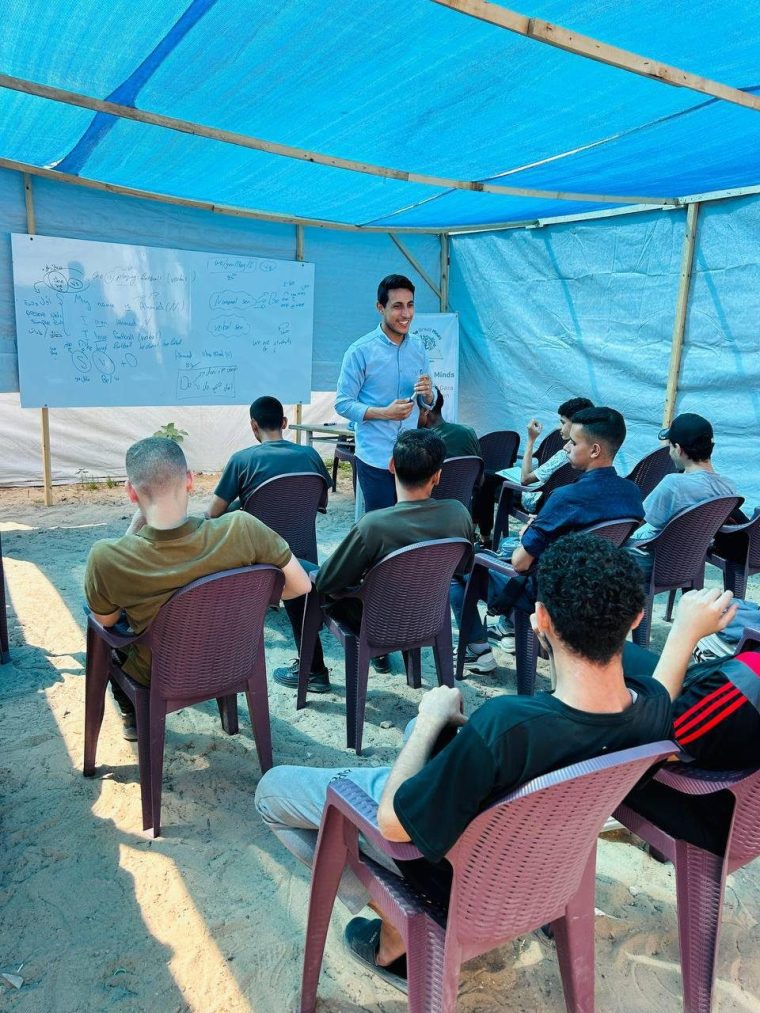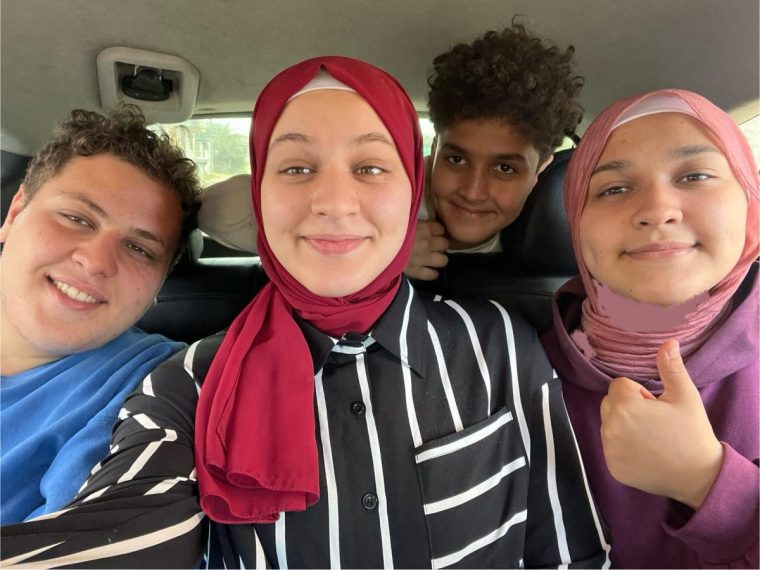‘I still have that smell in my mouth – it’s really disgusting and you feel you are not human anymore,’ Ahmad Abu Riziq tells The i Paper
Palestinians in Gaza have told The i Paper they were so desperately hungry they resorted to eating bird food while trying to survive the Israeli onslaught.
Ahmad Abu Riziq said he felt as though he was “not human” after attempting to eat the “disgusting” smelling fare.
“I remember that day as if it was yesterday,” said the 29-year-old teacher and charity worker. “I went to the market, my brothers, too. We couldn’t find anything.”
“A friend of ours called us and said: ‘There is a certain area, a certain market, and they sell the food of the birds. People are saying it’s good and it’s edible and you can try it.’”
“I went there directly and there was a shop for birds,” Abu Riziq said. “I took [a] few kilos and crushed them to make them soft. I gave them to my mother and when she baked them – the smell was horrible. We ate [it] because we were forced to. At that moment, we couldn’t find any sack of flour. That day was a very hard one. I wish this does not happen again.
“I still have that smell in my mouth – it’s really disgusting – and you feel you are not human anymore.”
He said he and his family “fled about 11 times from one place to another” before they were forced to leave Gaza City due to Israel’s latest military operation.
“We lived in a school, we lived in a hospital, in the street, in a tent, in renting apartments, in our relatives’ houses,” he said.
They have now fled the capital and taken refuge in a tent in Khan Younis, southern Gaza.
Speaking to The i Paper from a refugee camp, he said he was “trying to set up a school” and is hoping to have it “done in two to three weeks and start teaching the children of the camp”.
Abu Riziq is the founder of the Gaza Great Minds Foundation, a charity running classes for Palestinian children in makeshift tents and what buildings remain in the war-torn enclave.
Thousands have been forced to flee to the south of the Strip as the Israeli military carries out daily air strikes and its troops push into Gaza City – an area Benjamin Netanyahu described as Hamas’s “last major stronghold”.
The offensive comes as a United Nations commission of inquiry accused Israel of committing genocide in Gaza – a claim rejected as “distorted and false” by the Israeli foreign ministry.

Israel ramped up its restrictions on supplies entering Gaza after Hamas’s cross-border attack on 7 October, 2023, in which about 1,200 people were killed and 251 others taken hostage.
Famine and malnutrition due to the blockade have led to 440 deaths, including 147 children, according to Gaza’s health ministry. As of 17 September, at least 2,319 people have also been killed while attempting to access aid from sites run by the controversial Gaza Humanitarian Foundation since it began operating in May, according to the UN.
While Israel has repeatedly denied its blockade has led to mass starvation in the territory, the UN-backed Integrated Food Security Phase Classification last month confirmed a famine was underway in Gaza City and its surrounding areas, warning that half a million people across Gaza are facing “catastrophic” conditions characterised by “starvation, destitution and death”.
Asked what steps he would like to see the international community take to address the crisis in Gaza, Abu Riziq said: “I hope to see countries and people and all together the governments put more pressure on Israel – or at least don’t send them more weapons and money to kill us. This is what I really hope.
“This is again something that I can’t see happen, because simply we are in Gaza and they don’t even see us as humans.
“This is the harsh reality that we are in Gaza facing.”
‘I gave my relative CPR before he died of hunger’
Ola Amira, a 20-year-old medical student and volunteer at mutual aid initiative Reviving Gaza, told The i Paper that Palestinians are “being put through a life that humans are not able to endure”.
She said: “The situation in Gaza is so catastrophic, you don’t know what to talk about. Starvation, water scarcity, the deliberate killing of people, forced displacement, a failing healthcare system, a whole generation not being able to continue their education for almost two years.
“The people in Gaza that are being punished did nothing wrong. They don’t deserve what is happening to them.
“Even if people manage to survive, they are malnourished. A complaint of a lot of people in the war is that they have muscle spasms, because we don’t have vitamins.
“I hope that all of this can end soon and we can continue and pursue our dreams without worrying about food, water and our safety and security, or losing the feeling of stability and peace.”
During the war, Amira said she and her family had been displaced to Rafah in the south of the Strip, and the Nuseirat refugee camp in central Gaza, staying in shelters that were so crowded people had to sleep on their sides.

“If you sleep, you can’t sleep with your back flat,” she said. “You have to sleep [on] one side or you’re going to hit the other person next to you. It’s that crowded.
“You had to wait for at least 15 minutes just to get to the bathroom because it’s shared by 30 people.”
Amira said she and her family returned to Gaza City during the truce between Israel and Hamas earlier this year, but had to stay at her grandmother’s house with her siblings and other relatives, as their homes had been destroyed in the conflict.
Amira said her mother’s cousin, Rami, 50, died from starvation while sleeping on the floor above.
“We, early in the morning, were sleeping. We heard the sound of someone knocking.” Amira said it was her relative’s six-year-old nephew, knocking to alert them that Rami was not responsive.
“We tried to check his pulse and check if he’s responsive.
“I did CPR for him. I felt his ribs. I could directly touch his trachea. There was no muscle in his neck. He had nothing at all.
“He had passed away before we could even help.”
Aid enters Gaza ‘without quantitative limitation’, Israel says
When The i Paper put Amira and Abu Riziq’s stories to Israel’s Co-ordination of Government Activities in the Territories – a military body overseeing aid distribution – its spokesperson said that humanitarian supplies enter the enclave “without any quantitative limitation”.
“In recent weeks, more than 300 trucks have entered daily through the crossings, most of them carrying food,” the spokesperson added.
They explained that the entry of humanitarian aid into the Gaza Strip is “facilitated through a variety of channels including states, international aid organisations, distribution sites, the private sector, and airdrops”.
They added: “It should be emphasised that responsibility for collecting the aid from the crossings, as well as for distributing the food to the population in Gaza, lies with the UN and the international aid organisations.
“The UN and the international organisations are expected to improve the effectiveness of aid distribution and to ensure that the aid does not reach Hamas.”
